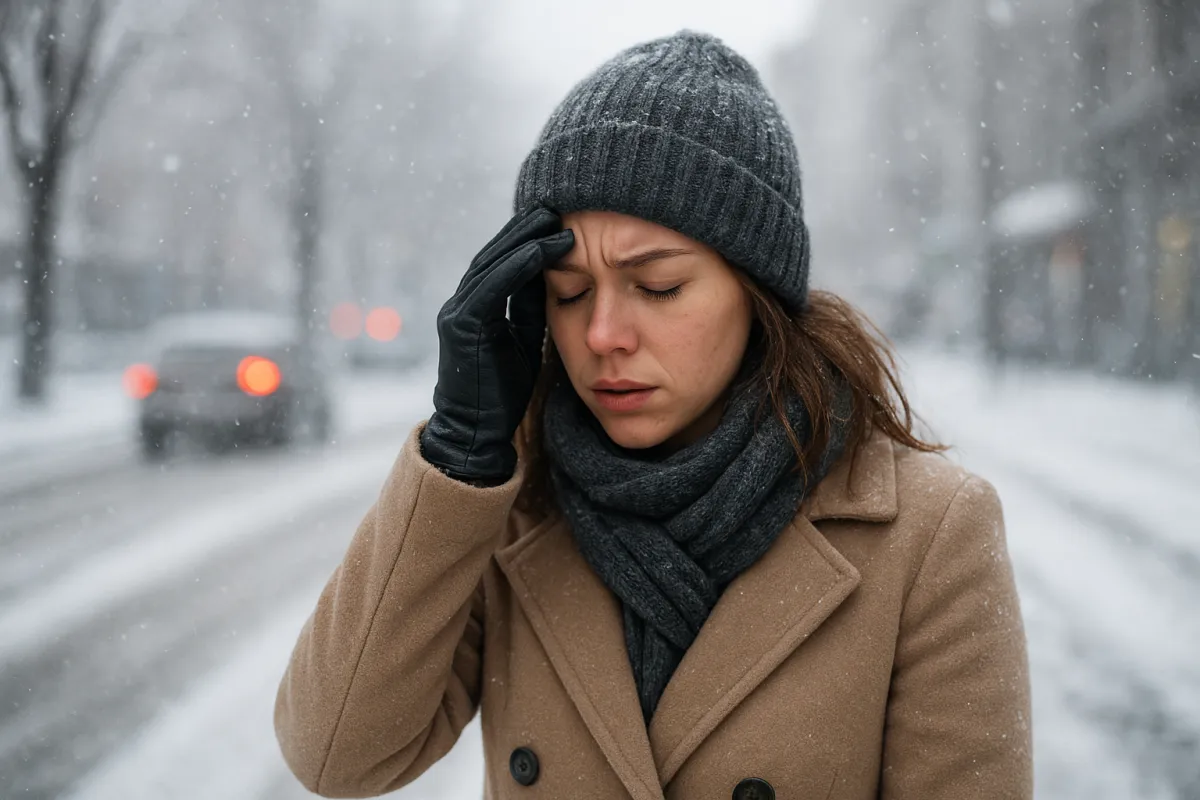
Winter Fatigue Recovery During and After Travels
Focus Theme: Resilience, Mobility, and Longevity for Wintry Days
Choosing to take a trip in the heart of Manhattan's winter can be a difficult decision. Subway delays, congested traffic, slippery roads, and ice-biting temperatures are enough headaches already. All these contribute to the overwhelming effects of winter fatigue for Manhattan travellers.
If you've recently taken a trip or are planning one, it's essential to be prepared for potential challenges. Winter fatigue can strike unexpectedly, so it's necessary to know how to prevent and manage it effectively.
What is Winter Fatigue?
Have you ever felt utterly drained after a long trip, wanting to lie in bed for days? Now, multiply that feeling by three, and you will understand what winter fatigue feels like. This phenomenon affects travelers physically, mentally, and emotionally, making them feel incredibly tired, irritable, and demotivated. Contrary to popular belief, winter fatigue is surprisingly common and affects people in multiple ways.
Some common signs and symptoms of winter fatigue during and after commuting include
Tired or sluggish feeling
Recurrent headaches, migraines, or muscle pains
Inability to think clearly or memory loss
Difficulty in breathing
Causes of Winter Fatigue During & After Travels
Winter fatigue impacts individuals for various reasons, primarily due to weather conditions, climate changes, and other factors characteristic of a Manhattan winter. These effects are often heightened during or after travel, making it increasingly likely for commuters to feel fatigued.
Below is a list of reasons that trigger winter fatigue for travelers
Travel stress: Traveling is often demanding. Luggage has to be packed, itineraries have to be checked, and you have to sit in one place for hours during a journey. All this can lead to extreme tiredness, ultimately leaving you feeling fatigued.
Poor sunlight: In winter, daylight hours in Manhattan are shorter, resulting in limited sun exposure for people. This lack of sunlight can disrupt the body's circadian rhythm, which regulates the sleep-wake cycle, leading to feelings of fatigue and restlessness. In more severe cases, travelers may become deficient in vitamin D, a nutrient essential for maintaining healthy bones.
Cold weather: The chilling temperature is rarely friendly, and prolonged exposure can cause physical pain. Travelers are also at risk of catching a cold or the flu after long trips.
Restricted Movement: During travel, movement is limited, putting commuters at risk of bone and muscle problems due to a lack of exercise and movement.

Tips to Prevent Winter Fatigue During Travels
It's not all doom and gloom. With the proper practices in place, travelers in Manhattan can minimize the risk of getting travel fatigue in the winter. Whether traveling by car, using the subway, or taking a plane, these tips will make traveling more bearable and prevent exhaustion.
Plan properly: Don't just head out. Make arrangements for stops, prepare hotel reservations, and fix a schedule that works for everyone. Don't forget to download travel apps to monitor weather conditions and traffic situations.
Stay hydrated: When you are dehydrated, you will feel tiredness and sometimes extreme headaches. Keep a water bottle handy and don't wait to feel thirsty to drink. It's essential to minimize caffeine during trips.
Eat healthy: While trips can be fun with snacks, ensure you include healthy options like fruits, nuts, and nutritious foods.
Stay active: Do something interesting, like playing games with others, listening to a song you love, or reading a good book. Take toilet breaks whenever you get the chance and remember to stretch a little.
Recovering from Winter Travel Fatigue
Suffering from tiredness and pain after traveling? It's time to recover. The first step is to rest properly and get proper hydration. Jet lag, winter cold, and travel stress won't leave you in one day, so don't try to move too much.
If you're experiencing travel fatigue with your partner, our Couple Strong Together Package is designed to help you recover faster. Sign up for one to get professional recovery tips, nutritional guidelines, and health advice that would get you to your best self in no time.
Planning for Fatigue-Free Winter Movements in Manhattan
Don't wait until the fatigue hits. At OsteoStrong UW, we help couples and families plan for winter travel challenges with travel strategies and strength training programs. Our in-house examiners will also provide custom travel plans with your health and fitness in mind, from the meals for your trips to the stopover exercises.
We also offer advanced recovery programs you can engage in after your travel for quick restoration.
Sign up for the Couple Strong Together Package for a smooth, fatigue-free trip.
Final Words
Traveling during the winter is almost inevitable. However, to stay healthy and minimize the risk of experiencing travel fatigue while traversing the Manhattan winter, it's crucial to plan your trips properly and observe healthy habits.
If you're seeking a recovery program in Manhattan to rejuvenate after a long trip, OsteoStrong has what you need. Our team of expert physiotherapists and orthopedic specialists will recommend a program for optimal recovery.